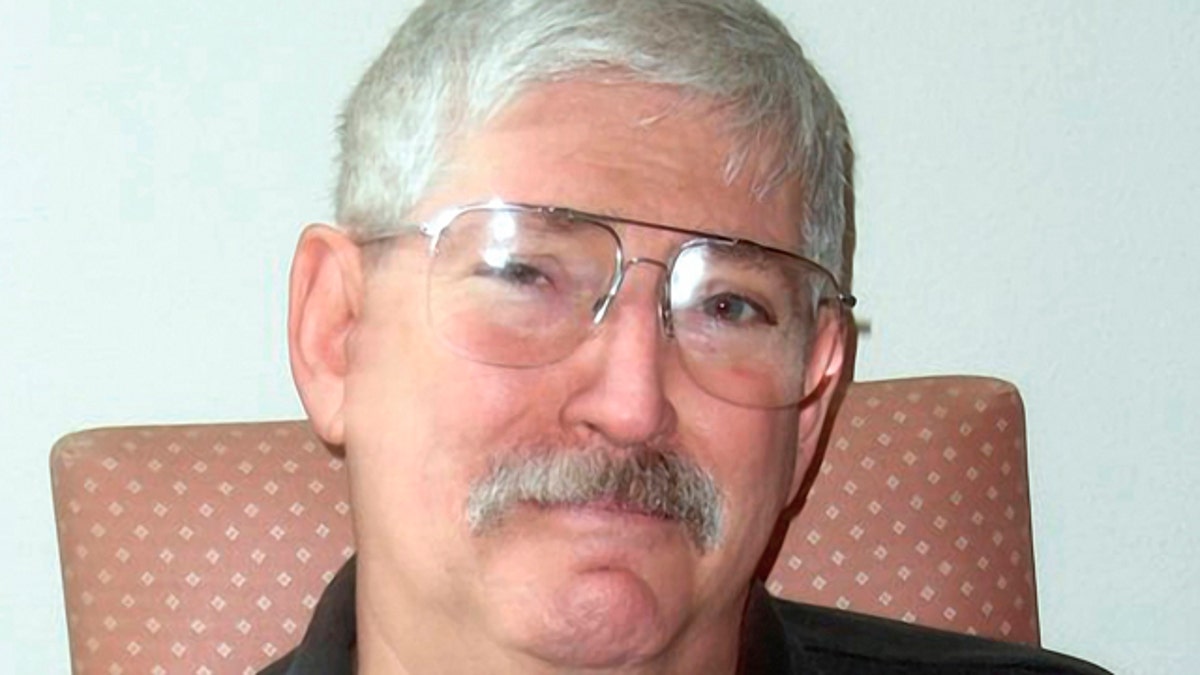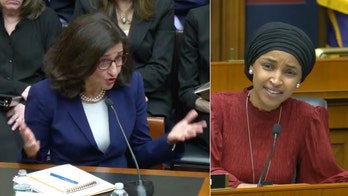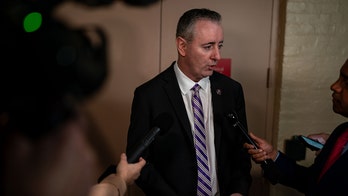
In this undated photo provided by Christine Levinson, Robert Levinson is shown. U.S. officials believe the former FBI agent is alive, four years after disappearing on Kish Island off the southern coast of Iran. (Christine Levinson/AP)
The intrigue over the rogue CIA agent last seen six years ago in Iran intensified Sunday with an accusation about a cover-up, Secretary of State John Kerry rejecting allegations the United States has abandoned the search and Iran distancing itself from the mystery.
Kerry expressed hope the new Iranian government would provide information on the whereabouts of the 65-year-old Robert Levinson and pushed back on the argument that the U.S. has stopped looking for the retired FBI agent.
“To suggest that we have abandoned him or anybody has abandoned him is simply incorrect, and not helpful," he told ABC’s “This Week.” “I think the Iranian government has the ability to help us here, and we hope they will."
Meanwhile, Iran Foreign Minister Javad Zarif told CBS’ “Face the Nation” that Levinson is not being held by the government and that he has “no idea” about who might have him.
Still, Zarif said his country “will certainly discuss” Levinson’s return should he be found.
The Associated Press reported last week that Levinson was working for the CIA to investigate the Iranian government, amid the U.S.’ longstanding position that he was a private citizen who traveled to an Iranian island on business.
Arizona Republican Sen. John McCain raised doubts Sunday about how much Iran knows about Levinson but said he was confident that his country is doing all it can to learn what has happened.
He also suggested on CNN’s “State of Union” that the Obama administration has not been totally forthcoming with information about Levinson and that the CIA “did not tell the truth to the Congress" about the ordeal.
Kerry acknowledged the lack of progress in finding Levinson, who was last known to be on an unauthorized CIA mission on the Iranian island in 2007.
“There hasn't been progress in the sense that we don't have him back," he said. "We're looking for proof of life. We're working on several processes that I'm not free to talk about. But there are a number of different channels that are being worked aggressively. … I can't tell you what happened or how the sequence was.”
On Friday, Levinson's family released a statement on the situation.
"Bob is a courageous man who has dedicated himself, including risking his own life, in service to the U.S. government," the statement read. "But the U.S. government has failed to make saving this good man's life the priority it should be. There are those in the U.S. government who have done their duty in their efforts to find Bob, but there are those who have not."
In March 2007, Levinson flew to Kish Island, an Iranian resort awash with tourists, smugglers and organized crime figures. Days later, after an arranged meeting with an admitted killer, he checked out of his hotel, slipped into a taxi and vanished.
In an extraordinary breach of the most basic CIA rules, a team of analysts -- with no authority to run spy operations – paid Levinson to gather intelligence from some of the world’s darkest corners.
The CIA was slow to respond to Levinson’s disappearance and spent the first several months denying any involvement. When Congress eventually discovered what happened, one of the biggest scandals in recent CIA history erupted.
Behind closed doors, three veteran analysts were forced out of the agency and seven others were disciplined. The CIA paid Levinson’s family $2.5 million to pre-empt a revealing lawsuit, and the agency rewrote its rules restricting how analysts can work with outsiders.
But even after White House, FBI and State Department officials learned of Levinson’s CIA ties, the official story remained unchanged.
Details of the unusual disappearance were described in documents obtained or reviewed by the AP, plus interviews over several years with dozens of current and former U.S. and foreign officials close to the search for Levinson. Nearly all spoke on condition of anonymity because they were not authorized to discuss the sensitive case.




